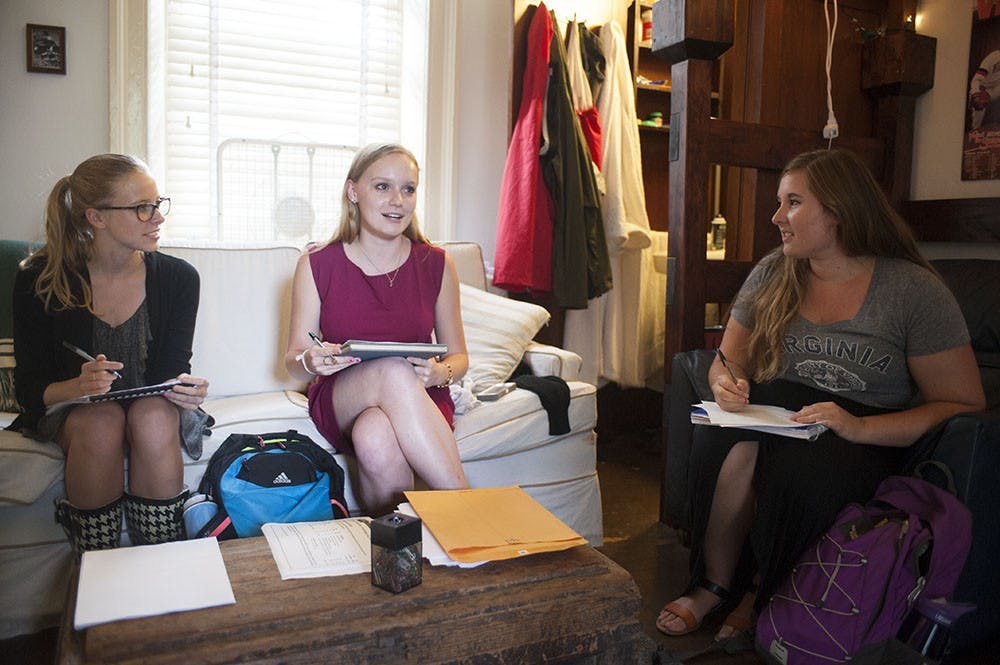The Honor Committee launched a new process for evaluating prospective support officers Sunday. The new program will bring a University community member to interview candidates alongside two existing Honor members.
Honor Committee Chair Nicholas Hine, a fourth-year College student, emphasized the importance of having a diverse presence in the interview process.
“Outside perspective is something we really value in this recruitment process,” Hine said. “We hold equal — if not more — weight on the community member evaluations.”
This new method replaces an old system in which three Honor support officers conducted a series of interviews to test applicants’ working knowledge of Honor’s policies. It comes as a part of a larger “Everyone is Honor” campaign aimed at expanding University participation in the honor system.
Third-year College Student Brian Lapkin, an honor support officer, helped conduct interviews through the new process this weekend and said the new system allows for a greater diversity of opinion.
“Students interviewed are being evaluated by [the] student body as a whole, not just Honor members,” Lapkin said. “Members of the community are more of a diverse group and can provide insight that Honor [members] may not have.”
Furthermore, Lapkin said this new system will help select candidates with a firm grasp of Honor policies.
“This way won’t lead to candidates throwing out Honor buzzwords,” Lapkin said. “It makes it more important that the interviewee knows the system.”
Community member interviewers were recruited to take part in the interview process through student leadership groups, such as L2K, Lawn residents and the Orientation and New Student Programs office. The Honor Committee also reached out to the Honor Committee Community and Diversity Group and Student Athletes Committed to Honor.
Arts & Sciences Graduate student Eric McDaniel, former Student Council president, participated in the interviews.
“I saw an email about the opportunity to be a community interviewer,” McDaniel said. “I was always interested in the honor system but never directly involved.”
Hine said the Honor Committee also plans to further student involvement by advertising the Committee’s weekly meetings and revamping a roundtable discussion series.
“Honor Congress last April or May was a great start,” McDaniel said. “Including the community [in the interview process] is a great next step.”
McDaniel said he believes the Honor Committee would benefit from greater public clarity and the change in the interview process is a good start.
“I hope that honor continues to directly involve members of the University community in the processes of the committee,” McDaniel said. “It’s a real, tangible and immediate step into broadening the community of trust. … By involving community members, the Honor system is increasing the diversity of viewpoints at the table.”







